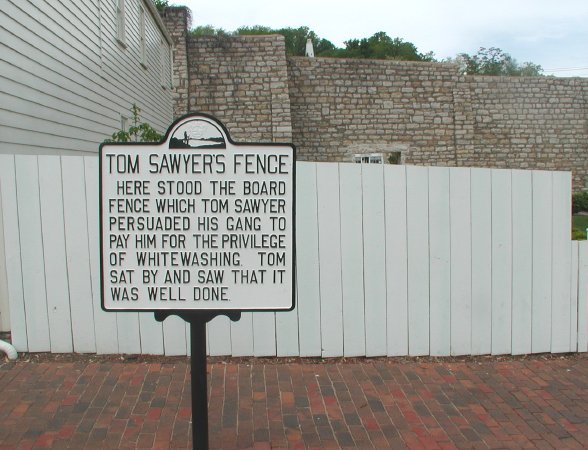Here we go again...
However, most the attendees at the Bell Schoolhouse Fire Station meeting opposed the project. Dennis Daniels, who organized the meeting, said he has already been a victim of eminent domain once and does not want to go through the process again.
"Honestly I don't have any questions for (representatives)," he said. "I just don't want them to come through my property."
He's concerned that the power line will decrease property values, restrict further development on his land and be an eyesore.
"It bothers me most that it's a private, for-profit company," he said. "They're going to use eminent domain to take our property rights away to give to a company in San Francisco to make millions of dollars off of each year."
The Texas wind market is tapped out. They've built so much wind generation and transmission to ship it around the state that sometimes they have to give it away for free.
This project has been in the works for years, but was only recently sprung on landowners along its 400-mile route. And chaos ensued. Of course the landowners don't want to be forced to sacrifice their property, personal wealth and peace of mind for the benefit of electricity consumers in other states in "the southeast." Southern Cross will only interconnect with the rest of the grid serving Louisiana and Mississippi at two converter stations, one near the Texas-Louisiana border, and the second near the Mississippi-Alabama border. What's in it for all the residents of Louisiana and Mississippi in between? Not much.
And to make matters worse, landowners in Mississippi are getting smoke blown in their faces by one of their PSC Commissioners, who is urging them to communicate with Pattern Energy instead of the PSC.
In a public meeting at the Bell Schoolhouse Fire Station just outside Starkville Thursday, Public Service Commissioner Brandon Presley urged residents to reach out to representatives from Southern Cross Transmission if they have questions about the company's proposed wind energy transmission line.
"Let it not be said of you that you didn't call on these people and that you didn't file an objection," Presley said at the meeting.
While eminent domain is not out of the question, Presley said he believes the company will do everything in its power to avoid having to use it. Southern Cross representatives have told him they have put in similar lines in other parts of the country without resorting to eminent domain.
Presley said his office received a plethora of letters, emails and phone calls from property owners who received letters. In a meeting with company representatives, Presley said someone from the company has to meet with property owners one-on-one at the time and place of the landowner's choosing.
In an interview with The Dispatch Thursday, Presley said a Southern Cross representative had already begun meeting with landowners individually. Presley also had the company designate a point of contact for landowners to call. Since then, his office has received fewer calls from concerned citizens.
In June, Southern Cross Transmission sent letters to landowners whose property is within 500 feet of one of the proposed routes and promised to hold meetings and answer questions from landowners. The company then hosted an open house for property owners, but many left that meeting with more questions than answers, Presley said.
Legally, Southern Cross Transmission doesn't have to communicate with the public at all until it has decided on a route and filed a proposal with the Public Service Commission. But Presley wants to ensure that the company shows landowners the dignity and respect they deserve.
Pattern is misleading landowners about FERC's authority to permit this project.
FERC has previously found that the interconnection of the Southern Cross Project to the ERCOT transmission system is in the public interest and that the Project will create substantial benefits both for the ERCOT and the Southeast regions.
Landowners can make a big difference by participating in the PSC process, and that's where they should be directing their energies right now, not wasting their time discussing where to put the project with Pattern Energy.
Southern Cross Transmission plans to settle on a route and file its proposal with the commission this fall. Once that happens, Presley said, citizens have 20 days to file an objection, which gives them legal rights in the case.
He requested landowners write down whatever questions they have, take those questions directly to the company and wait until they had met with Southern Cross representatives before deciding whether to oppose the project.
Exactly... and that's why landowners are getting such late notice about this project. But there's still plenty of time to organize and legally intervene. The bigger the stink, the better the chances the project will be cancelled.
Presley has also said he will not approve the project unless the company can prove it has some benefit to Mississippi.
"I'm as much for clean air and clean energy as the next guy, but it's got to be about more than renewable energy," he said. "For us, that's a plus, but there has to be other things."
"At the end of the day, the ability to connect into wind energy, which does not cost anything as far as burning coal, burning natural gas, (is) obviously an energy source that could have a benefit to the state," Presley said.
"That's the benefit," he added. "But also obviously if this electricity is low cost, I'm not going to be supporting trucking it through Mississippi to pump it to Atlanta, Georgia, and our people have cheap electricity ran over the top of their property and not being able to take advantage of it."


 RSS Feed
RSS Feed